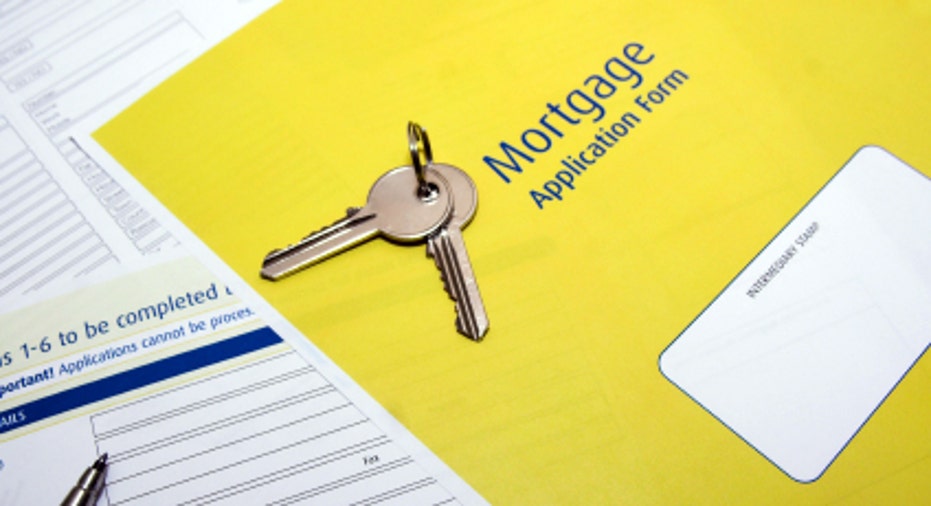Mortgages Hop Because of Budget Squabbling

The rate on the most common type of mortgage inched up this week, despite the Federal Reserve's renewed efforts to push mortgage rates down. Who's to blame? Congress, for making investors anxious as it appears that lawmakers are far from reaching a deal to avert the "fiscal cliff."
The benchmark 30-year fixed-rate mortgage rose to 3.52% from 3.5%, according to the Bankrate.com national survey of large lenders. The mortgages in this week's survey had an average total of 0.37 discount and origination points. One year ago, the mortgage index stood at 4.19%; four weeks ago, it was 3.54%.
The benchmark 15-year fixed-rate mortgage was 2.85%, the same as last week. The benchmark 5/1 adjustable-rate mortgage stayed at 2.74%.
Fed Hands Borrowers Low Rates
The Fed took a new approach Wednesday and pledged to keep a key short-term interest rate down until the unemployment rate falls below 6.5%. November's unemployment rate was 7.7%, and unemployment was above 8% most of the year.
Determined to keep rates low, the Federal Open Market Committee announced it will continue purchasing $40 billion a month in mortgage-backed securities. In addition, the Fed will pour another $45 billion a month into purchases of long-term U.S. Treasury bonds to compensate for the ending of Operation Twist this year, in which the Fed reinvested money from short-term bonds into longer-term bonds.
Higher demand for mortgage and U.S. Treasury bonds normally results in lower mortgage rates.
"If Treasuries purchases help keep long-term Treasury rates low, they should help keep mortgage rates low as well," says Paul Edelstein, director of financial economics at IHS Global Insight.
Congress Could Take Some of it Away
While the Fed's latest announcement is great news for borrowers, mortgage rates remain somewhat vulnerable to what Congress may or may not do prevent deep spending cuts and tax increases from taking effect simultaneously at the beginning of the year. Lack of action could push the U.S. economy back into recession, economists say.
"With the fiscal cliff process becoming a fiasco, many are leaving the bond market, as it may get volatile toward the end of the year," says Brett Sinnott of CMG Mortgage Group in San Ramon, Calif.
If it weren't for the Fed printing billions of dollars a month to buy mortgage bonds, borrowers would be facing higher rates today, some mortgage professionals say.
The Fed is "attempting to create stability in the economy to compensate for the fact that the government is doing such a great job of creating instability," Sinnott says.
Who Will Win the Battle?
Until Congress reaches an agreement on the cliff, which will probably happen at the eleventh hour, rates will fluctuate and could potentially rise in the short term. Eventually, they will adjust and stay low as the Fed wishes, analysts say.
So What's a Borrower to Do?
Because there are no guarantees of where mortgage rates will be a month from now or at the time you need to close on your loan, some mortgage professionals say it's wise to lock a rate soon.
"I would definitely recommend that loans get locked and closed before the end of the year, as things could get bumpy come Jan. 2," Sinnott says.
Michael Becker, a mortgage banker at WCS Funding in Baltimore, says the decision should be based on what's at stake for each borrower.
Refinancers who are switching from a rate in the 5% to 6% range should not waste a minute and lock as soon as they qualify for a mortgage, Becker says. Those who refinanced or got a mortgage recently, and have a rate in the low- to mid-4s, should probably float to maximize their savings, he says.
For homebuyers, Becker says it's usually best to lock.
"If you've got a contract in your hand, I always say lock," Becker says. "If it so happens that rates drop one-eighth (of 1 percentage point), don't beat yourself about it. And remember that rates go up much faster than they go down."



















